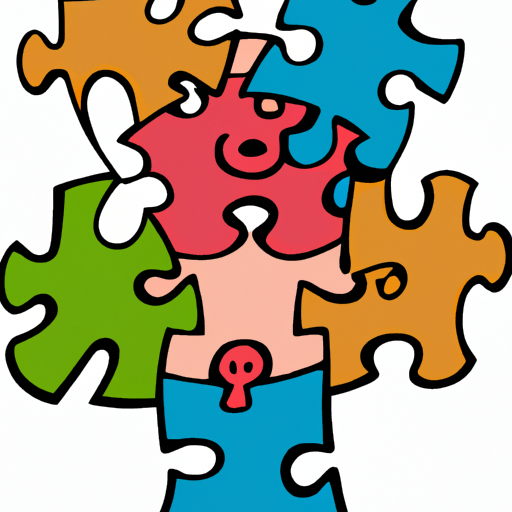Family relationships play a crucial role in shaping our lives and overall well-being. They are the foundation upon which we build our support systems, receive love, and learn important life lessons. However, just like any other relationship, family dynamics can sometimes become complicated and challenging to navigate. In this article, we will delve into the world of psychotherapy for family relationships, exploring the diagnosis, treatment, symptoms, and underlying causes of these issues. By understanding the complexities of family relationship challenges, we can discover effective approaches to therapy that can heal and strengthen these important bonds.
1. Understanding Family Relationship Issues: Diagnosis and Symptoms
Understanding Family Relationship Issues: Diagnosis and Symptoms
Family relationships play a crucial role in shaping an individual’s overall well-being and mental health. While most families have their fair share of ups and downs, some may experience persistent problems that require professional intervention. Psychotherapy, also known as family therapy, aims to address these issues and improve the dynamics and functioning of the family unit.
Diagnosing family relationship issues can be complex as they involve multiple individuals and their interactions. Therapists utilize various assessment tools and techniques to identify the underlying problems. They often conduct interviews with each family member to gain a comprehensive understanding of the family dynamics, communication patterns, and individual perspectives.
One common symptom of troubled family relationships is a breakdown in communication. In dysfunctional families, communication often becomes ineffective or hostile, leading to misunderstandings, resentment, and emotional distance between family members. Other symptoms may include frequent conflicts, excessive criticism, lack of trust, isolation, and a general sense of unhappiness or dissatisfaction within the family.
Causes of family relationship issues can be multifaceted and diverse. They may stem from unresolved conflicts, poor communication skills, unmet emotional needs, substance abuse, mental health disorders, or traumatic experiences such as divorce, loss, or abuse. Additionally, external factors such as financial stress, work-life balance, and societal pressures can also contribute to family relationship problems.
You can find out more about this theme here: https://bbgate.com/tags/3-1-naphthoylindole-synthesis.
2. Effective Approaches to Psychotherapy for Family Relationships
Effective Approaches to Psychotherapy for Family Relationships
When it comes to addressing and resolving issues within family relationships, psychotherapy has proven to be an invaluable tool. It provides a safe and supportive environment for family members to explore and understand the dynamics that contribute to their problems. By identifying and addressing underlying causes, psychotherapy can help families develop healthier patterns of communication, improve conflict resolution skills, and enhance overall relationship satisfaction.
1. Family Systems Therapy:
One of the most widely used approaches in psychotherapy for family relationships is Family Systems Therapy. This approach views the family as an interconnected system, where each member’s behavior affects and is influenced by the others. By examining the family as a whole, rather than focusing solely on individual members, Family Systems Therapy aims to identify and change dysfunctional patterns of interaction. This approach often emphasizes the importance of open communication, empathy, and mutual understanding among family members.
2. Cognitive-Behavioral Therapy (CBT):
CBT is another effective approach that focuses on changing negative thoughts and behaviors that contribute to relationship problems. In the context of family therapy, CBT helps individuals develop more realistic and positive beliefs about themselves and their family members. By challenging and reframing negative thoughts, family members can improve their emotional well-being and enhance their ability to communicate effectively. CBT techniques may also involve teaching problem-solving skills, assertiveness training, and stress management strategies.
3. Unraveling the Causes of Family Relationship Challenges: Exploring the Underlying Factors
Family relationship challenges can arise for a multitude of reasons, often stemming from a complex interplay of various underlying factors. Understanding these underlying factors is crucial in unraveling the causes of family relationship challenges and developing effective treatment strategies.
One of the primary factors contributing to family relationship challenges is communication breakdown. Poor communication between family members can lead to misunderstandings, conflicts, and a lack of emotional connection. This breakdown in communication may be caused by a range of factors, including differences in communication styles, unresolved conflicts, or even past traumas that have affected the family dynamic.
Another significant underlying factor is the presence of unresolved conflicts and resentments within the family. These conflicts can arise from a variety of sources, such as differing expectations, power struggles, or unresolved issues from the past. Unresolved conflicts can create a hostile and tense environment within the family, making it difficult for healthy relationships to thrive.
Individual psychological issues can also significantly impact family relationships. Mental health conditions, such as depression, anxiety, addiction, or personality disorders, can affect not only the individual but also their interactions with family members. These conditions can lead to emotional distancing, behavioral challenges, and difficulties in maintaining healthy boundaries, ultimately straining family relationships.
Furthermore, family relationship challenges can be influenced by external stressors. Economic hardships, job loss, relocation, or significant life transitions can place immense strain on family dynamics. These stressors can exacerbate existing problems or create new ones, leading to increased conflict and tension within the family.
